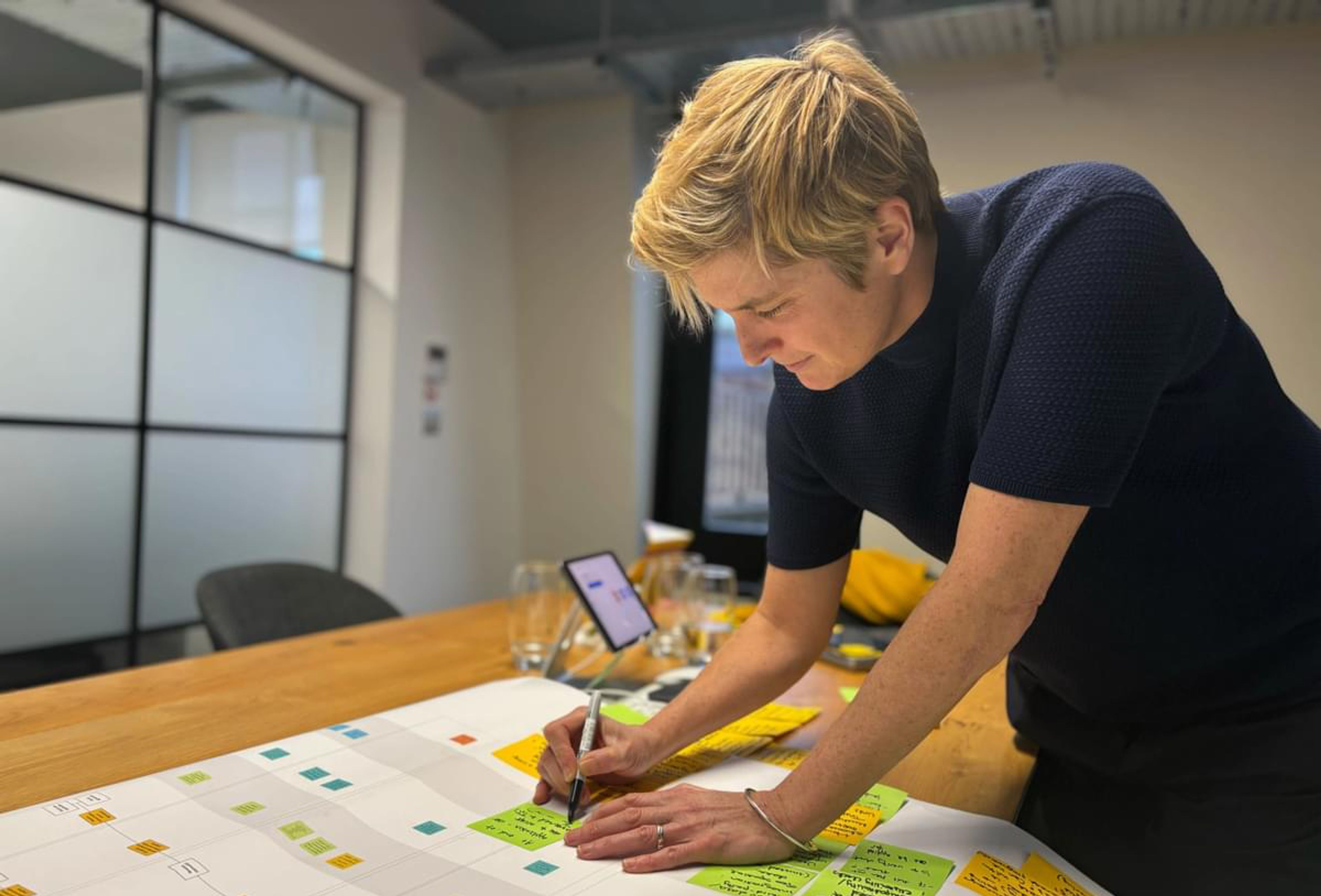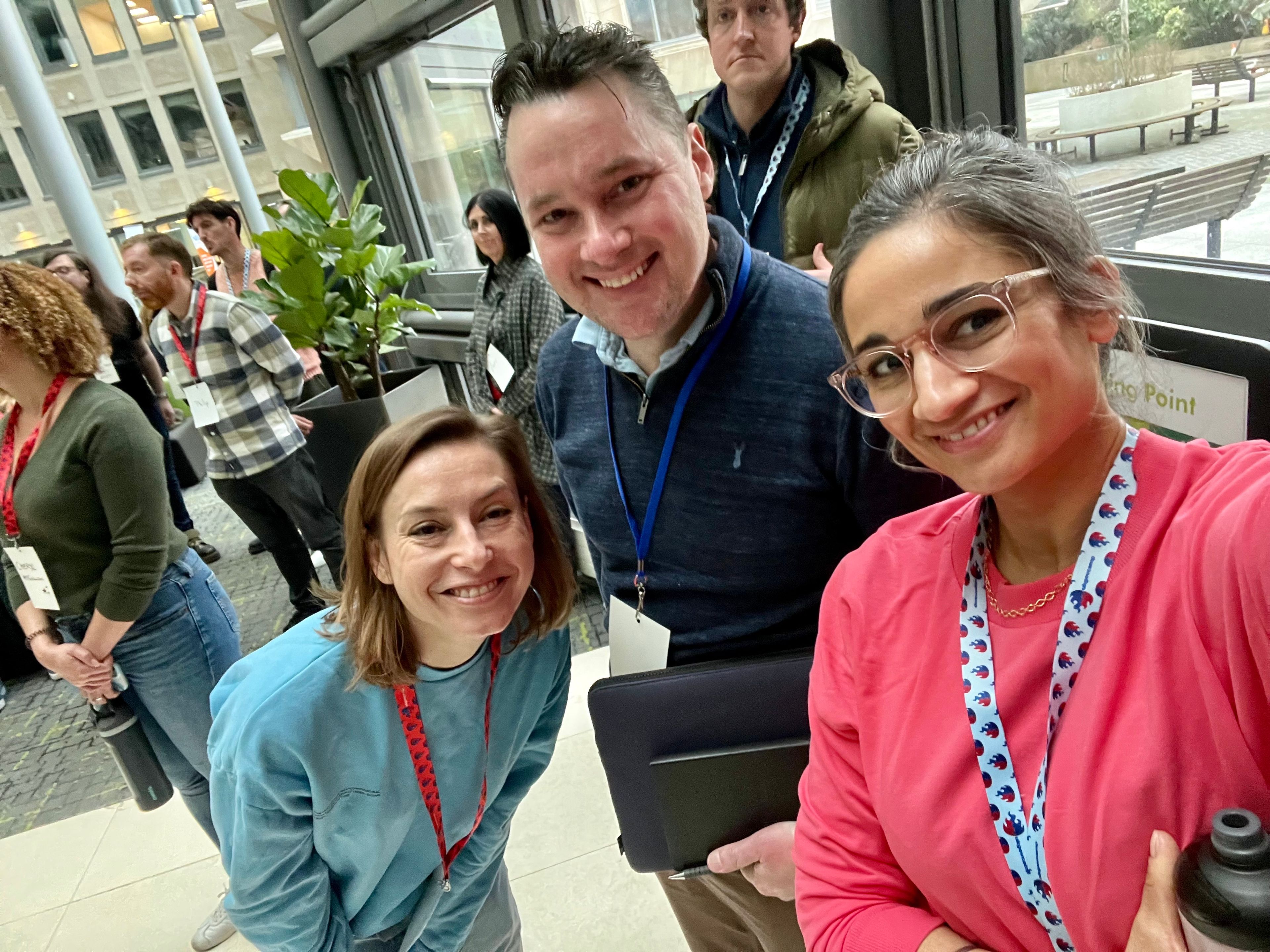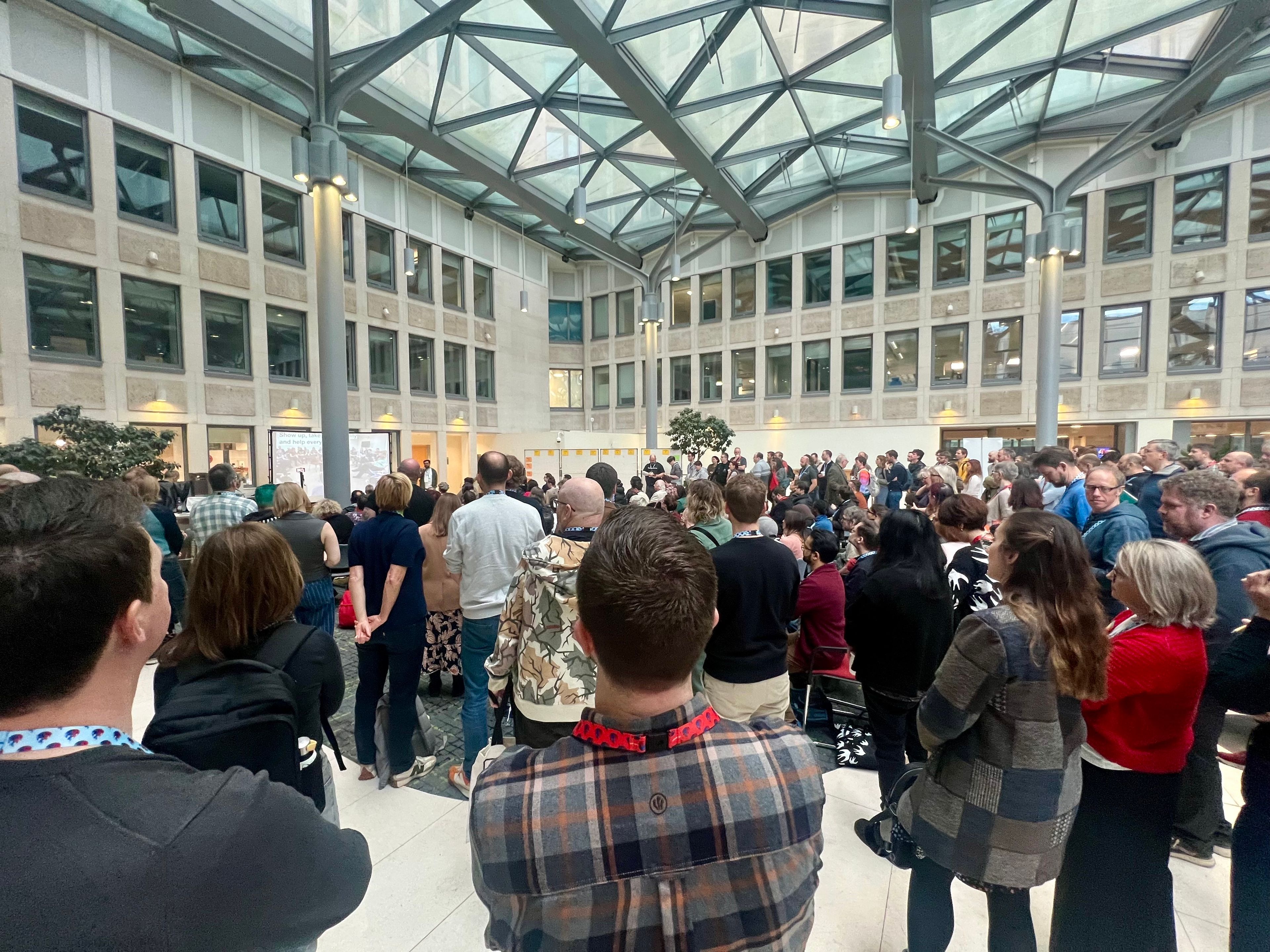
Public Digital at UKGovCamp 2025

Last weekend, several of us joined the annual UK GovCamp ‘unconference’ in London. Sessions ranged from mission-led change to flexible workplaces, spending reviews to test and learn.
We enjoyed discussing and debating AI's potential to drive positive change, best practices, leadership and policy. Here are our honest takeaways from a day of open, energetic discussions about what's working (and what isn't) in government transformation.
General takeaway: Local government and the value of serendipity
Thoughts by Gavin Beckett: "This year saw fewer local government folks and senior leaders than usual, which meant some conversations stayed in familiar territory – focusing on digital transactions rather than tackling harder questions about relational services.
But GovCamp's real magic has always been in the unexpected conversations. For me, that included connecting with Wirral Council about their work with Liverpool City Region CA's Office of Public Service Innovation - exactly the kind of serendipitous moment that makes these events worthwhile.”
Here are some of the sessions that took place on the day, led by both PD'ers and UK colleagues in the space:
Writing publicly: Silencing your inner critic – by Georgina Watts
Thoughts by Oli Lovell: “This was a great community self-help session for those who want to write but get stuck with their inner critic. It started with a very clever ice breaker, followed by a great set of ideas from the room – from paired writing, Pomodoro technique, building habits and being more Taylor Swift. The session was so good I managed to get a draft post written on the train home.”
Patterns and anti-patterns of leadership behaviour for digital transformation – by Millie Devereux
Thoughts by Millie Devereux: “I facilitated this session on leadership behaviours for digital transformation. It was brilliant to hear some real examples of positive behaviours - clear communication about outcomes, enabling teams to work autonomously and with trust. We also discussed some difficult behaviours - and ways these can be shifted through small, practical changes. What struck me most was how universal these experiences are across government, and how eager people are to find constructive ways forward. The energy in the room showed there's a real appetite for more conversations about the human side of transformation."

Place-based test and learn – by Pete Chamberlin, PD
Thoughts by Dave Rogers: “Pete facilitated a frank discussion about the tensions in implementing test and learn approaches. In our chat, it became clear that success demands a careful balance between local learning and national scaling – especially given institutional mistrust. While test and learn needs to be a unifying movement, it can't be another rigid methodology imposed from above. Instead, it needs to build on the valuable work already happening in challenging conditions on the ground.”
Navigating the spending review – by Jenny Duckett
Thoughts by Dave Rogers: “This was a great troubleshooting session for anyone about to go through the upcoming Spending Review process. Our group discussed how the process often feels disconnected from what’s happening on the ground. Want to get somewhere? Bring in economists to make your Treasury case, and know your legal ground on funding cuts. Whilst highlighting issues in the process might not secure immediate funding, it’s crucial for driving long-term improvements in the system."
Creating flexible workplaces for disabled people – by Melissa Lawrie
Thoughts by Gosia Szewczuk: "The reality is that workplace accessibility lives or dies by line manager empathy. In this conversation, we discussed the need to move beyond ad-hoc arrangements towards proper standardised policies and training. It's striking that public sector organisations required to serve disabled people often struggle to support their own disabled staff. Tools like the Health Adjustment Passport show promise, but implementation remains a big challenge."
Written by

Millie Devereux
Principal Consultant
